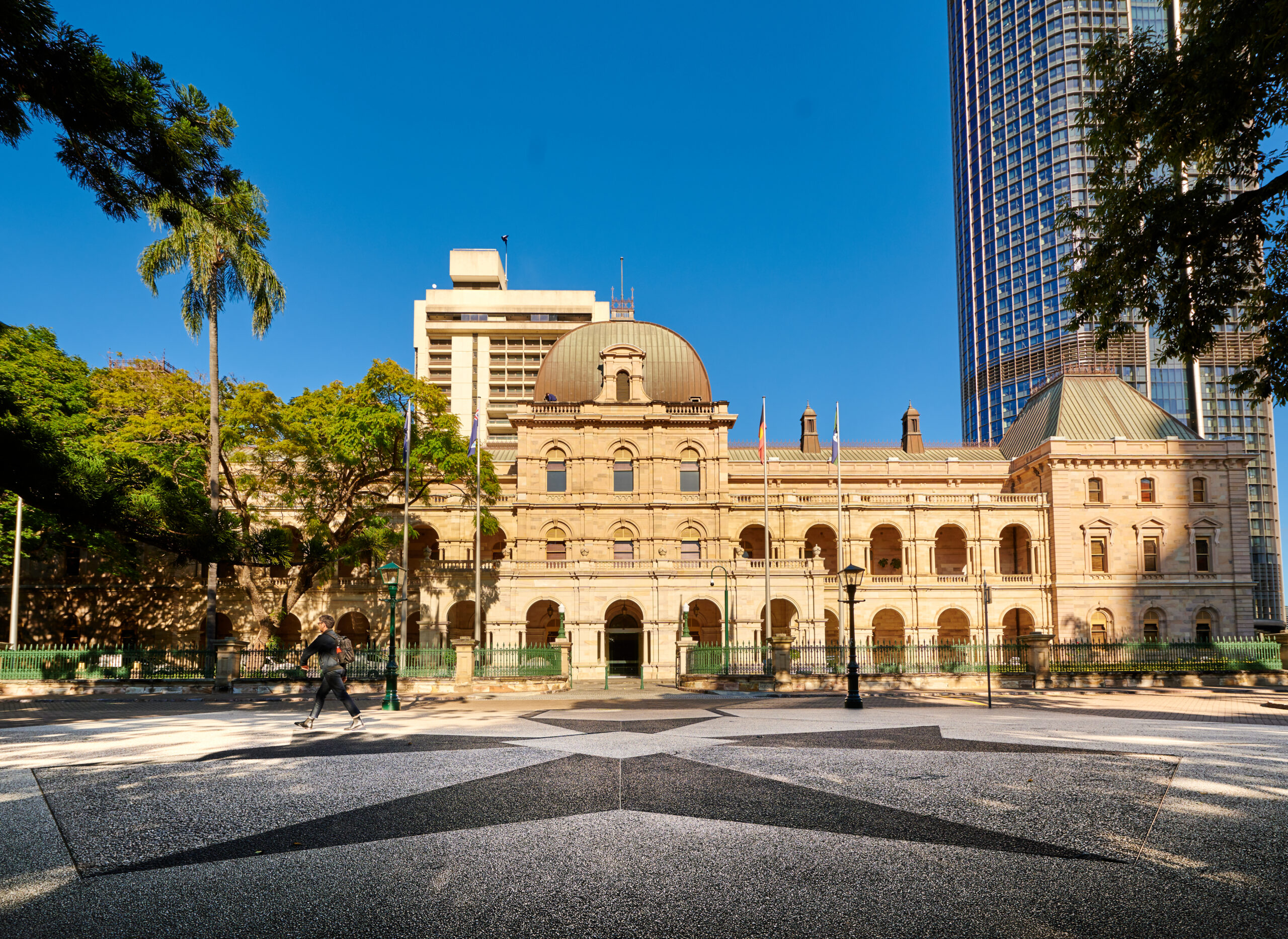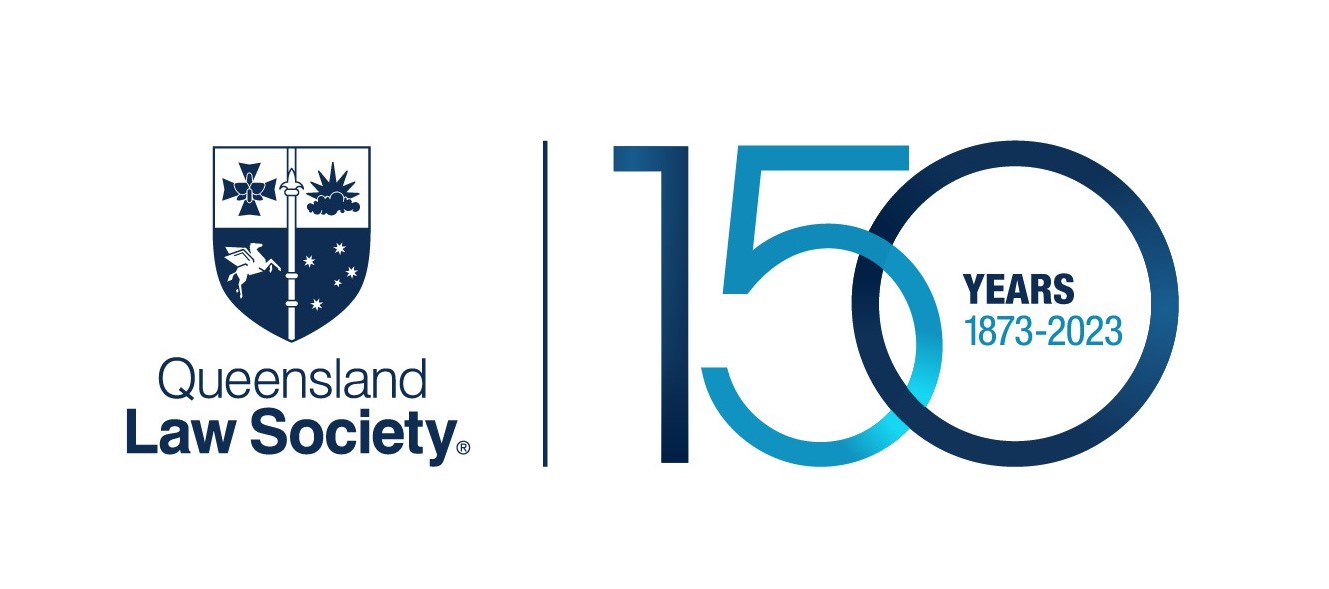The Queensland Law Society is celebrating 150 years of advocating for good law and serving the public good by providing a clear and passionate voice for the state’s legal profession. In the final of this two-part series, we look at the Society’s positive impacts on the community right up until today.
1948 – 2023 (the second 75 years)
It was in the latter half of the twentieth century that the Society’s advocacy work as we know it today began to take shape. In the late 1950s, the Society engaged in an inter-jurisdictional effort to harmonise the Companies Acts of the various states.
QLS also made its voice heard on legislation on some of the most controversial issues of the 70s and 80s, including the Pregnancy Termination Bill, Police Complaints Tribunal Bill, and Commonwealth Games Legislation.
The establishment of ad-hoc committees in criminal, property and family law, litigation, trade practice and intellectual property bolstered advocacy efforts, with the efficient sub-committee structure laying the foundations for today’s policy committee structure.
Momentum increased in the early 90s with discussion on the contentious issue of independent solicitors’ certificates, with the society’s Finance and Securities Law and Property Law and Practice committees keeping it under close review.
The formation of the Succession Law Committee in 1998 aimed to ensure practitioners’ experience was considered in any policy and legislative reforms through increased liaison with the Bar, the Courts, government and the community.
Advocacy in the new millennium
The turn of the century marked a significant advocacy milestone, with the QLS Legal Policy department established in 2003, and a new committee structure implemented by the Society in 2004, with 17 committees reporting to 18 new sections. The new structure allowed QLS to deepen its engagement with committees and the resulted in the Society making significant contributions across a broad range of policy areas.
The arrival of the Children’s Law Committee in 2000 harked a new era for advocacy and paving the way for youth justice law reforms such as raising the minimum age of criminal responsibility and campaigning for the removal of children and young people from watch houses.
A watershed moment came when QLS launched a major campaign for 17-year-olds to be removed from the adult criminal justice system. The Society teamed up with the ABC on high-profile media stories and encouraged fellow law societies to write to the Queensland Attorney-General calling for reform, resulting in state parliament changing the relevant legislation in 2016. QLS also participated in stakeholder groups convened to examine the transition of 17-year-olds into the youth justice system.
Access to justice was a particular focus in the early 2000s, as it remains today. The QLS Access to Justice Committee consulted with Legal Aid Queensland (LAQ) to monitor the preferred supplier project and raised issues of concern to members including scale of fees in family and criminal law matters, and guidelines in the Civil Law Legal Aid Scheme. In a win for sustained engagement by the Committee in 2021-2022, LAQ increased payment for solicitors and barristers representing financially disadvantaged clients in most state law matters.
The 2000 Queensland Law Society Forum on Elder Abuse was a pivotal achievement for QLS advocacy[1], resulting in the launch of the Prevention of Elder Abuse Taskforce strategic plan the following year. Continuing to build this work, QLS launched a joint issues paper with the Public Advocate in 2010, while the QLS Elder Law Committee was influential in the development of the 2017 General Practitioner Elder Abuse Awareness campaign trial, supplying information to GPs to help them direct victims to the Elder Abuse Prevention Unit helpline. The Committee contributed to the 2018-19 inquiry into aged care, end-of-life and palliative care and voluntary assisted dying, and collaborated with members of the Criminal Law Committee to discuss the possibility of discrete criminal offences for elder abuse.
QLS continued to ensure the profession kept pace with the demands of advancing technology, helping develop requirements for client identification and on who should have access and rights to electronically sign documents in the new eConveyancing system. A member survey and Property and Development Law Committee engagement with the Department of Justice and Attorney-General led to the new Land Title Regulation 2022, mandating eConveyancing of required instruments for certain fee simple property transactions.
New committees to tackle emerging issues
Developing submissions remained a priority for QLS throughout the first decade of the new millennium. This focus paid off, and by 2012 as the Society had achieved a 57 per cent increase in advocacy success on legislative, policy and procedural change. The formation of the Not-For-Profit Law and Mining and Resources committee that same year also saw the latter successfully advocate for an appropriate balance between miners and landowners.
The Call to Parties (CTP) has been a key framework for proactive advocacy involving the new Government for many years, resulting in such successes as:
- Removal of the ‘gag clause’ from community legal centre contracts
- Commitment to the establishment of a protocol for judicial appointments
- A commitment to an audit of all Queensland courts and tribunals
- A commitment to the re-establishment of the Sentencing Advisory Council
After advocating for a judicial commission in the 2017 CTP, QLS established a cross-committee Judicial Commission Working Group, aiming to strengthen the institution of the courts by supporting the rule of law, maintaining the independence of the judicial branch of government, and improving public confidence.
The Domestic Violence Working Group played a significant role throughout 2015 in response to the report Not Now, Not Ever – Putting an End to Domestic and Family Violence in Queensland. Acting on the four recommendations QLS was tasked with, the working group created the Domestic and Family Violence Best Practice Guidelines for practitioners to utilise when dealing with DFV matters. In collaboration with LAQ, the Domestic and Family Violence Best Practice Framework was published in 2020 to guide and help legal and non-legal practitioners deliver services to people affected by DFV.
The newly formed Reconciliation and First Nations Advancement Committee hit the ground running in 2017, contributing to 12 policy statements and submissions in its first year. Renamed the First Nations Legal Policy Committee the following year, it carved its place in history through heavy involvement in feedback on the transformative Path to Treaty Bill 2023.
Other key committee advocacy highlights over the last decade include:
- 2016-17 updates to the joint QLS/REIQ Contracts, and new Joint Commercial Tenancy Agreement by the Property and Development Law Committee, and 2022 update of standard sale of land contracts by QLS and REIQ
- The commencement of claims farming in 2019 following a submission to the Economics and Governance Committee on the Motor Accident Insurance Amendment Bill
- The ongoing review of the Independent Solicitor’s Certificate, currently undergoing consultation under the review of the Banking and Financial Services Law Committee.
- The establishment of the Human Rights and Public Law Committee in 2020 in anticipation of the implementation of the Human Rights Act 2019.
A new era: COVID-19
The arrival of the pandemic proved pivotal, with QLS playing a leading role in advocacy on legislative change.
The drafting of several regulations by QLS flowing from emergency regulation passed in in 2020, with the QLS Health and Disability Law Committee at the coalface of regulatory change responding to the human impact of COVID-19, and the review of the Ethical Framework for decision making during the pandemic.
The Litigation Rules Committee also responded to several difficulties faced by the legal profession and clients, such as updating technology to adapt to changes imposed by COVID-19, building on its earlier efforts lobbying for modernising technology in Queensland courts.
QLS continued to engage with government over ongoing extensions of the emergency legislative measures, with the Property and Development Law Committee providing ongoing advocacy on retaining key reforms such as the electronic signing of deeds, statutory declarations and general powers of attorney for corporations. The passing of the Justice and Other Legislation Amendment Act 2021 enshrined many of these reforms in legislation.
Advocacy now and into the future
From wartime wills to the COVID-19 pandemic, the Society has proven tenacious on its advocacy journey. Today, QLS remains committed to advocating for change on emerging and long-standing issues and is proud of the exceptional work done by the 29 standing legal policy committees and their volunteer members who currently advocate for good law, for the public good. Their dedication enables the Society to develop sound and balanced submissions to government which will have a positive impact on both the legal profession and the Queensland community.
[1] https://webarchive.nla.gov.au/awa/20060731061522/http://pandora.nla.gov.au/pan/61190/20060731-0000/www.communities.qld.gov.au/seniors/publications/documents/pdf/strategic_plan_prev_elder_abuse.pdf
Jaime Gunning and Caiti Betts are Law Clerks at the Queensland Law Society.
















Share this article